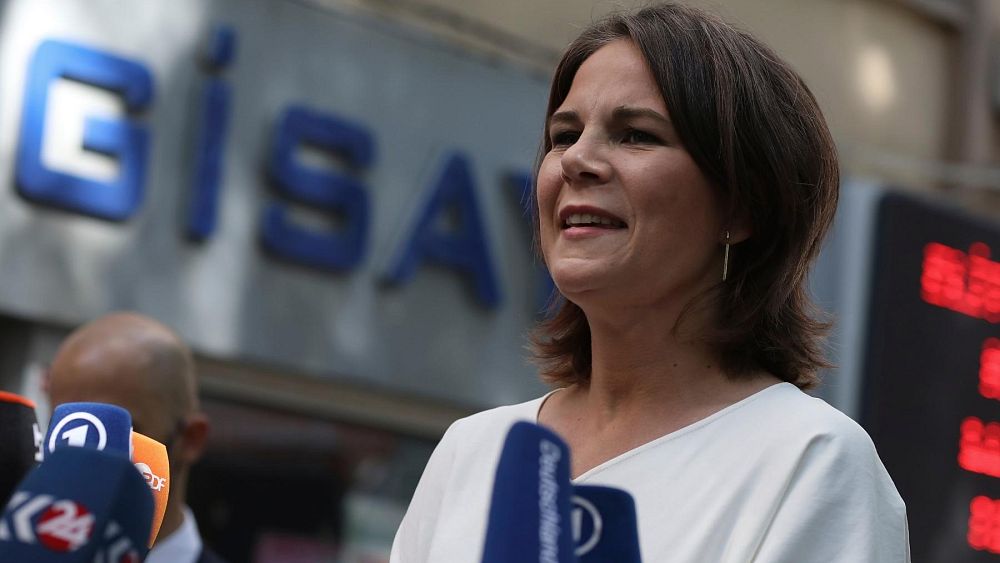German foreign minister offers praise and criticism on visit to Greece and Turkey

Germany’s foreign minister has praised Turkish efforts to support refugees who arrived in the country, saying they were “not only cared for but also integrated.”
Annalena Baerbock made the comments on the third day of her visit to Turkey, as she met with organisations working with women and migrants that Germany helps to fund.
Turkey hosts some 3.7 million Syrians who have sought refuge from the war.
“Children not only have the opportunity to learn the language, but also to have fun and play with other local children,” said Baerbock.
“Integration succeeds above all when it happens on the ground in the community.”
Baerbock’s conciliatory comments come after a tense Friday press conference with her Turkish opposite number Foreign Minister Mevlut Cavusoglu, when the pair volleyed grievances back and forth.
Cavusoglu called on Germany to be “an honest broker” and not always side with Athens in disputes between Turkey and Greece.
While Baerbock welcomed Turkey’s contribution to regional security in the Black Sea, she also cautioned the NATO member about sticking within the confines of international law when it comes to a new military offensive in northern Syria which targets Kurdish militants Ankara says are a threat to its security.
“Neither retribution nor abstract preventive attacks are part of the right to self-defense,” the German foreign minister warned.
Meetings with Greek officials on migrant issues
Before arriving in Turkey, Baerbock was in Athens to meet with Greek ministers.
She took the opportunity to criticise Turkey for disputing the sovereignty of Greek islands near its coastline, calling for more dialogue and “level-headed action.”
“Yes, many questions of international law are complicated, but some are also very simple. Greek islands – Lesbos, Chios, Rhodes and many, many others – are Greek territory, and no one has the right to raise questions over that,” she said.
During a visit to a refugee camp, Baerbock reminded the Greeks that their external border is also the common European external border.
“A border always has doors where people can enter. And at the same time, human rights. Our European foundation of values, of course also apply at the European external border,” she said.
There have been numerous reports, and concerns raised by international organisations, that Greek authorities have been turning away migrants who arrive at their border.
